Saturday marks 400 years since the death of William Shakespeare with celebrations already underway across the British Isles and beyond.
His works have been translated into dozens of languages for readers around the world, including some of his first and biggest international fans in Germany.
But why are Germans such big Shakespeare geeks?
“This question is not so easy to answer,” writes the German Shakespeare Society on their website.
“On the one hand, they like the extraordinary linguistic quality and the intellectual profundity of Shakespeare’s works, which since the end of the 18th Century have been taken in by the ‘nation of poets and thinkers’, and helped Shakespeare to be considered the third German classical author (next to Goethe and Schiller).”
So how did England’s national bard end up among Germans’ top pick of poets? The Local takes a look at some of the ways he’s become so beloved in Deutschland.
1. The first full translation of Shakespearean plays was into German
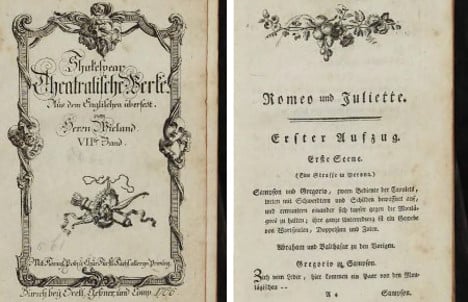
Christoph Martin Wieland's translation of Shakespeare's works. Images: Wikimedia Commons.
The Dutch and French were also quite early and big fans of Shakespeare's work, but it was Christoph Martin Wieland who first produced complete translations of Shakespeare's plays, churning out 22 German versions between 1762 and 1766, according to the MIT Global Shakespeare Video and Performance Archive.
Many other Germans would follow in his footsteps to translate the works for German readers, like August Wilhelm Schlegel, who once called the Bard “ganz unser” – entirely ours.
2. Goethe was one of Shakespeare’s biggest fans
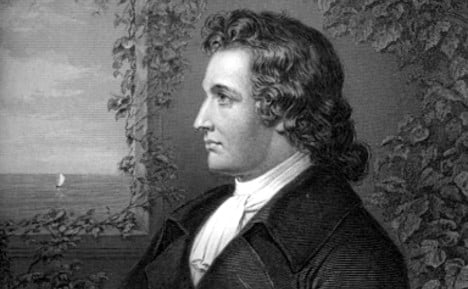
A portrait of Goethe by Georg Melchior Kraus. Source: Wikimedia Commons.
Germans really started taking a liking to Shakespeare in the 18th century, especially with the Sturm und Drang (Storm and Stress) dramatist movement, which sought to overthrow rationalism with free expression of emotions.
Among them was Germany's beloved Johann Wolfgang von Goethe who in his early twenties described his first experience with Shakespeare as a sort of literary awakening.
Goethe even once declared a national “Shakespeare Day” for Germany.
“The first page of his I read put me in his debt for a lifetime,” a 22-year-old Goethe told friends in Frankfurt in 1771, more than 100 years after the English playwright was long gone.
“Once I had read an entire play, I stood there like a blind man given the gift of sight by some miraculous healing touch.”
3. The world’s first academic fan club for Shakespeare was German
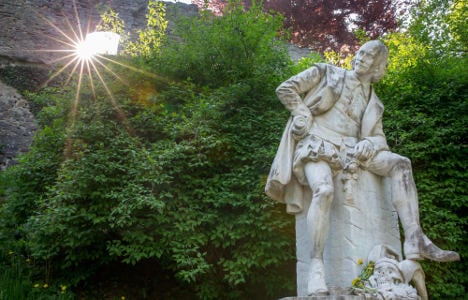 Photo: DPA
Photo: DPA
The German Shakespeare Society was founded in 1864 in Weimar, where Goethe had lived and worked for decades, becoming the first in the world of its kind. The group now has around 2,000 members and holds annual conferences.
And these Shakespeare buffs even erected a statue of the bard in Weimar in 1904 (pictured above) for the 40th anniversary of their group, honouring the Englishman in a similar fashion there as the German greats Goethe and Schiller.
4. The Globe once declared ‘Shakespeare is German’
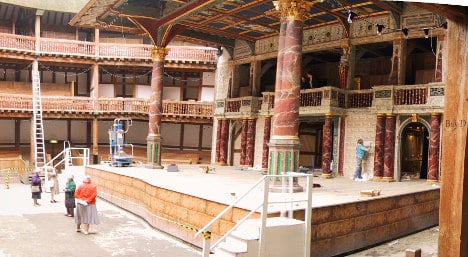
Shakespeare's Globe Theatre in London. Photo: Maschinenjunge/Wikimedia Commons.
In 2010, Shakespeare’s Globe Theatre in London held a special season of events called Shakespeare is German, including readings, lectures, film screenings and other cultural events dedicated to Germany’s special fondness for ole Bill.
International German film star Sebastian Koch even showed up to do some readings.
5. Germany puts on more Shakespeare plays than England
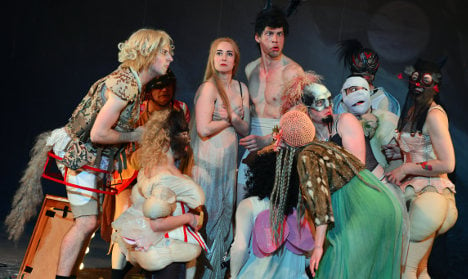
A rendition of A Midsummer Night's Dream in Weimar. Photo: DPA
Yes, you read that correctly.
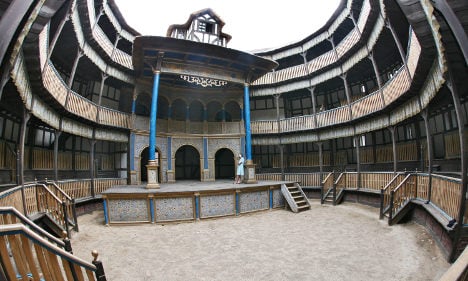

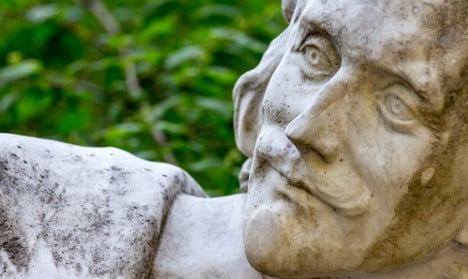
 Please whitelist us to continue reading.
Please whitelist us to continue reading.
Member comments